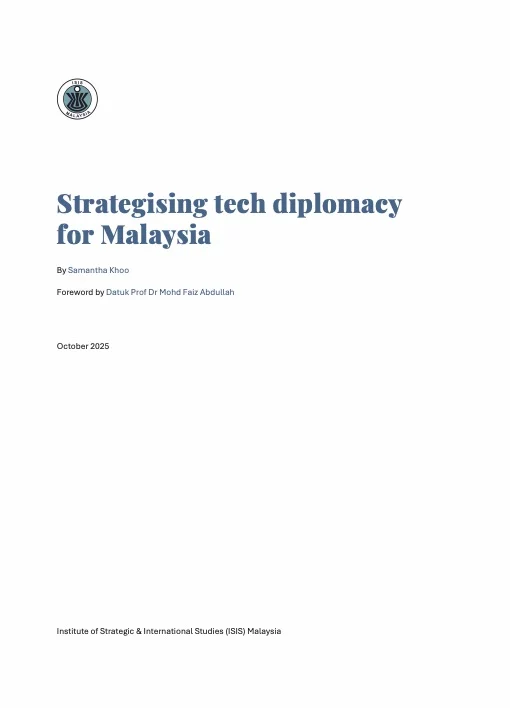Executive summary
- As digital power shifts from governments to technology companies, platform providers and standards bodies, states must rethink their diplomatic strategies. This research note argues that tech diplomacy, defined as a state’s strategic engagement with global technology actors, platforms and norm-setting institutions, is now a foreign policy imperative. In an increasingly polylateral digital environment, fragmented regulatory responses are no longer sufficient.
- Using Malaysia as a case study, the note proposes a whole-of-government tech diplomacy framework (CDAF-D+) to coordinate cross-border digital engagement and elevate Malaysia’s normative voice in multilateral, regional and corporate-led digital forums. These pillars include internet governance, data governance, cyber legislation, cyber diplomacy, AI governance, cybercrime and attacks, and cyber risk management. The addition of AI governance reflects the urgency of developing clear national positions on artificial intelligence across ethical, regulatory and geopolitical domains.
- Through a detailed mapping of Malaysia’s institutional landscape, including MOFA, MOSTI, MDEC, MCMC, PDPD, NACSA and others, the paper proposes a coordinated whole-of-government approach. This includes the creation of an interministerial tech diplomacy task force, while leveraging on platforms like the National Digital Economy and Fourth Industrial Revolution Council to align domestic and international technology governance efforts.
- Finally, the paper outlines practical pathways to operationalise tech diplomacy, including strengthening interagency coordination, enhancing diplomatic training and building strategic partnerships with international forums and private technology actors. It also recommends the use of national policy platforms to align domestic and foreign digital agendas and proposes a tech diplomacy scorecard to monitor institutional readiness and global engagement. These measures aim to equip governments with the tools to move from reactive participation to proactive norm shaping in the global digital order.





